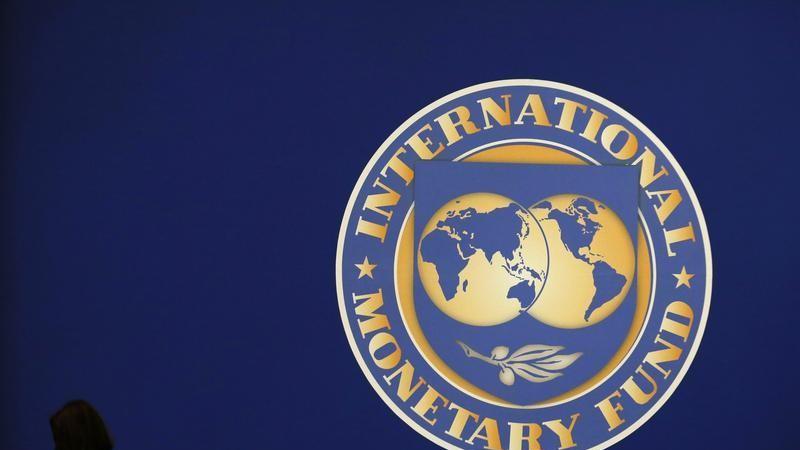As measures to curb inflation heighten risks, the IMF cautions that the “worst is yet to come.”

The International Monetary Fund reduced its global growth predictions for 2019 and warned of a severe global recession if policymakers managed the fight against inflation poorly on Tuesday, claiming that the world economy was heading for the somber prognosis revealed in the IMF’s carefully regarded World Economic Outlook report, which was released as senior economic leaders from across the world arrived in Washington for the World Bank and IMF’s annual meetings.
The meeting takes place at a challenging time, as ongoing supply chain disruptions and Russia’s involvement in the conflict in Ukraine have driven up the price of food and oil over the last year, pushing central bankers to drastically boost interest rates to cool their economies. A cascading of recessions in wealthy countries and debt crises in developing ones might result from raising borrowing costs, which will likely lower inflation by reducing consumer and corporate investment.
Policymakers are becoming increasingly concerned that the global economy won’t have a so-called “soft landing.” The International Monetary Fund research concluded, “In summary, the worst is yet to come, and for many people, 2023 will feel like a recession.”
The institution has kept its most recent prognosis, which predicted that the world economy would expand by 3.2 percent this year, but it now expects that growth will drop to 2.7 percent in 2023, which is a little less than the fund’s earlier prediction. Both numbers represent significant declines from the fund’s initial estimates of global growth for 2022 and 2023 of 4.4 percent and 3.8 percent, respectively. This shows how the picture has been gloomier in recent months.
After reaching a peak later this year, inflation is predicted to drop from 8.8 percent in 2022 to 6.5 percent in 2023. The top economist of the International Monetary Fund, Pierre-Olivier Gourinchas, stated in an interview that dangers are increasing and the world economy is faltering. About one-third of the world economy is anticipated to be in a technical recession. A two-quarter economic decline is what the fund refers to as a “technical recession.”
Wall Street and corporate America are already preparing for a slump. JPMorgan Chase CEO Jamie Dimon stated on CNBC on Monday that there was a good chance the US will have a recession “six to nine months from now.”
Despite the gloomy outlook provided by the International Monetary Fund, some private analysts are calling for much worse. According to a Bloomberg survey, the median analyst anticipates 2.9% global growth this year and 2.5% the next year, with Eastern Europe’s output falling and the euro area seeing a 0.2% gain in 2023. The I.M.F. report went into depth on how the economies of the United States, China, and the 19 countries that use the euro are all slowing down in different ways, with global repercussions.

Consumer buying power is being reduced in the US due to inflation and increasing interest rates, and the housing market is slowing down as a result. Consumers saw some reprieve from inflation following a recent three-month drop in gasoline prices, but prices have already begun to increase once more. Following the oil output decrease imposed last week by the global cartel known as OPEC Plus, there are worries that the trend may persist. A lower estimate than its prior prediction, the fund predicted that the US economy will expand by 1.6 percent this year and 1 percent in 2023.
Lockdowns to stop the spread of COVID-19 in China continue to hinder the country’s economy, which is expected to rise 3.2 percent this year following 8.1 percent growth in 2021. In addition to its economic limitations, China is experiencing a problem in its real estate market due to cash-strapped homeowners who are refusing to pay back debts on incomplete houses. The International Monetary Fund issued a warning that the housing crisis in China might spread to the nation’s domestic banking industry.
Due to new sanctions that will go into force later this year, just as the weather begins to become colder, Europe, which has been mostly dependent on Russia for energy, will see huge hikes in the price of oil and gas. Many European economies have been supported by tourism in 2022 while manufacturing activity has slowed due to the uncertainties surrounding energy costs.
To combat inflation, legislative ideas have been made that have brought about their turbulence. Investors’ rejection of Prime Minister Liz Truss’ and her new government’s tax and expenditure measures caused chaos in the British financial markets. In response to a “material danger” to the country’s financial stability, the Bank of England increased its involvement in the British bond market on Tuesday. This is the second time in two days that it has increased these emergency measures.
Although Russia is mostly to blame for the increase in food and energy costs, especially in the face of severe international sanctions, the country’s economy is doing better than expected. Much less than many analysts anticipated earlier in the year, the Russian economy is predicted to fall by 3.4 percent this year and 2.3 percent in 2023.
Officials from the International Monetary Fund credited this to the tenacity of Russia’s oil exports, which has enabled it to boost its economy and support its labor market. Russia is still in a severe recession, and its economic production is far lower than it was before the conflict.

Policymakers congregated in Washington with the effects of Russia’s invasion of Ukraine at the forefront of their minds. The Treasury secretary, Janet L. Yellen, spoke out against Russia’s activities during a conference of finance ministers on Tuesday to resolve the world food crisis. Anton Siluanov, the finance minister of Russia, participated electronically in the meeting.
According to a copy of Ms. Yellen’s speech released by a Treasury Department source, “Putin’s government and the officials who serve it—including those representing Russia at these conferences—take responsibility for the terrible human suffering this conflict has produced.”
Ms. Yellen urged the Group of 20, which stands for the biggest economies on the globe, to provide financial aid to countries experiencing food shortages and said that she would accept a break on debt repayment for those nations that required it.
Emerging markets are under pressure as a result of the slowdowns in advanced countries, many of which were already vulnerable and struggling under heavy debt loads as they recovered from the epidemic. Millions of people are in danger of falling into poverty as a result of rising interest rates, surging food prices, and declining export demand. Additionally, the pandemic’s long-lasting consequences on public health are due to poor vaccination rates in regions like Africa.
Before this week’s sessions, World Bank President David Malpass warned reporters that “the poor are hit the hardest.” We are now experiencing a crisis-related development. Emerging economies are also at risk from the U.S. dollar’s fast rise, which is currently at its highest level since the early 2000s. The International Monetary Fund recommended that decision-makers in those nations “batter down the hatches” and hold onto their foreign currency reserves in case things become worse economically.
As suffering mounts in both wealthy and developing nations, central bankers are facing demands to limit interest rate hikes as the suffering mounts. Policymakers are under growing pressure to mitigate the consequences.

However, the fund issued a warning that skimping on the fight against inflation would make it more expensive in the long run. Additionally, it advised against implementing budgetary measures that might worsen inflation. The fund admitted in its report that there was a lot of uncertainty around its estimates. The epidemic might return with a vengeance if Russia continues to cut off its gas shipments to Europe. Debt issues in emerging nations could also get worse.
Edited by Prakriti Arora





